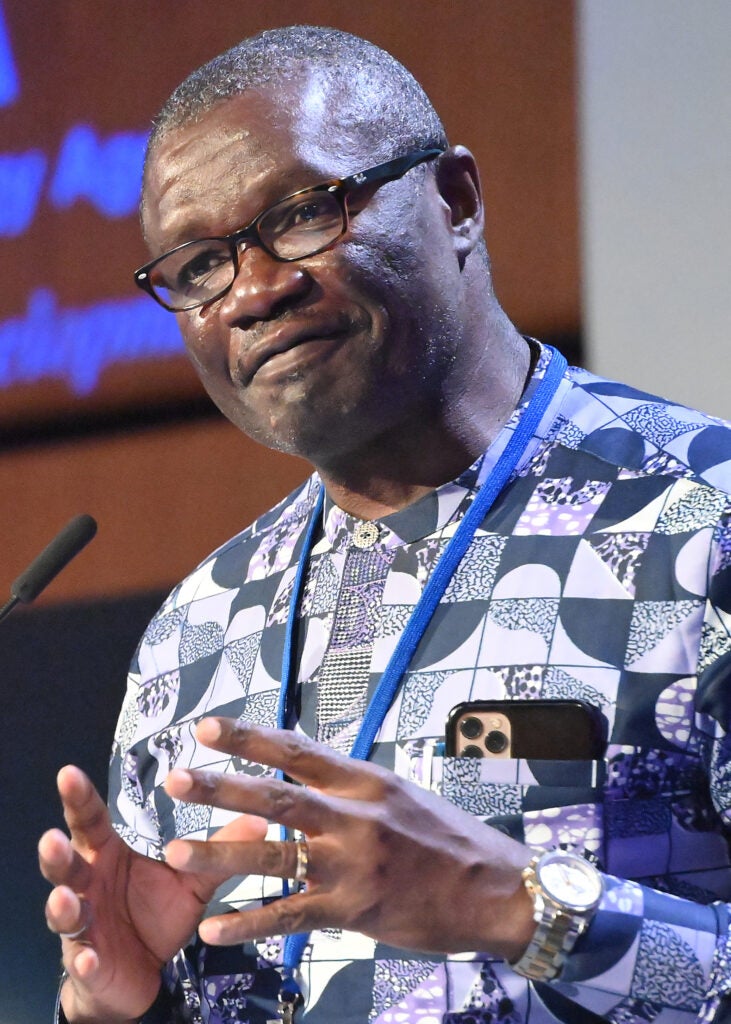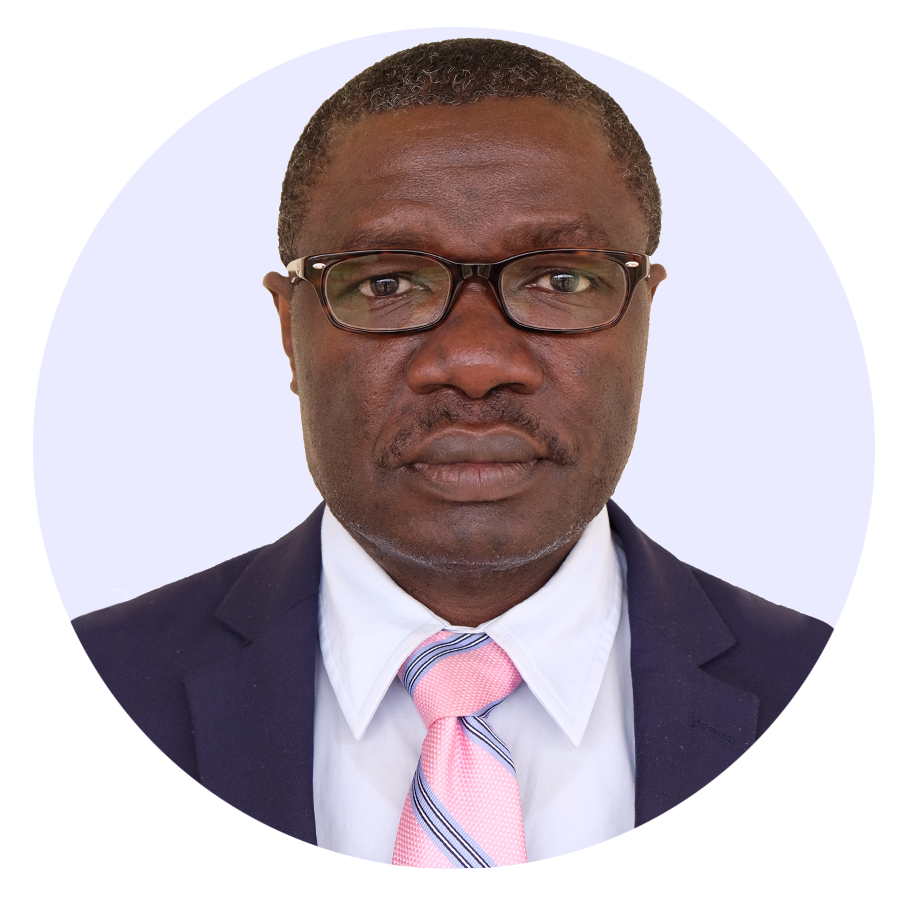Q&A with Christian Happi, new Adjunct Faculty Member in IID
June 1, 2023
Can you tell us a little about your research background? How did you get started in your current field?
As a young child in my home country of Cameroon, I had countless bouts with malaria. These experiences pushed me to want to find the cure to this disease that plagued so many in my community. To further this goal, I enrolled to study Biochemistry at the only university in my country, the University of Yaounde. After this, I moved to Nigeria to attend the University of Ibadan, where I obtained an MSc and PhD in Molecular Parasitology and later, I completed my postdoctoral training in Molecular Biology at Harvard University T.H. Chan School of Public Health in 2003.
Early on in my career, I studied the genetics of malaria, including working to identify biomarkers for chloroquine resistance in Plasmodium falciparum. From there, I became deeply interested in how the genetics of both pathogens and humans affect the spread of infectious diseases in Africa and across the world. I became involved in the 1000 Genomes Project, looking at the genetic variation in populations from two ethnic groups in Southern Nigeria. I also saw the catastrophic impacts that emerging and re-emerging viral diseases can have on populations across Africa. To that end, I began developing and deploying genomic tools in sites across West Africa (specifically Nigeria, Sierra Leone, and Senegal) to detect and characterize these diseases, such as Ebola, Lassa and Yellow Fever, Monkepy-pox, COVID-19, etc.
What questions/problems are you working on that you are most excited to explore?
African nations are the most ill-prepared to face future pandemics and contain outbreaks of deadly viruses such as Ebola and Lassa fever. I believe strongly that Africa has an unharnessed capability not only to contain the pathogens in Africa but lead the world on how best this can be done. To do this, Africa needs a more holistic system to deal with emerging pathogen threats.
I’ve engaged in a collaboration with IID Faculty Member, Prof. Sabeti, to co-direct the SENTINEL project – early warning and response system for outbreak detection and pandemic preemption. Launched in 2020, it is a comprehensive approach to disease surveillance and builds health system resilience in West Africa by: detecting high priority pathogens using agile genomic tools, connecting public health stakeholders at all levels to real-time data, and empowering them to act on the data. I want to leverage these innovative platforms to advance the Harvard Chan School of Public Health’s research into broad-ranging emerging infectious diseases with pandemic potential and expanding early warning systems to detect and respond to such threats.
What’s been one of the most meaningful projects you’ve worked on?
In 2013, I founded and established the African Center of Excellence for Genomics of Infectious Diseases (ACEGID), a network of molecular and genomics laboratories in West Africa that hunt, detect and characterize highly infectious emerging and re-emerging pathogens. Based at Redeemer’s University in Ede, Osun state, Nigeria, ACEGID is a vibrant academic and research environment that spreads across several countries in West Africa that works to produce impactful, ethical and high quality translational genomics-based research for health advancement in Africa. Through the ACEGID network, we’ve been able to build capacity for African scientists to do high quality research on their own terms, rather than depending solely on external collaborators to assist with sample and data analysis.

What plans do you have for the first few years of your new role as an adjunct professor at the Harvard Chan School?
Together with another IID Professor Pardis Sabeti, I designed and led a Genomics Bootcamp first taught at Harvard University in 2012 and expanded to institutions across West Africa over the past decade. In all, the genomics educational curriculum I established at ACEGID has trained over 1,300 scientists and frontline health workers on the African continent. I now aim to create a fully merged world-class training program across Harvard T.H. Chan School of Public Health and ACEGID, to support genomics education across the globe. Through an additional award from the United States Center for Disease Prevention and Control (CDC), we now have an opportunity to codify this training and provide formal curriculum in genomics and bioinformatics to the public health workforce.
Can you tell us one thing (e.g hobbies/interests) that colleagues may not know already about you?
Reading, and working with underprivileged communities.




